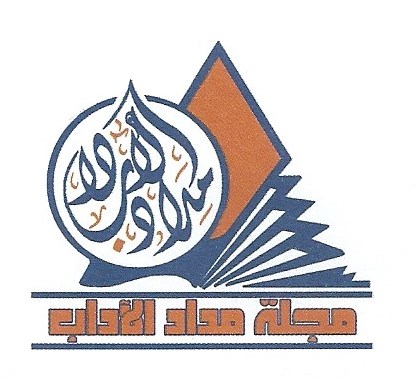Midad AL-Adab Refereed Quarterly Journal

Article Title
Abstract
The search for significance (or the owner) in Arabic poetry, and technical staffing for this nickname since the pre-Islamic era until the end of the Abbasid period, stopping on a number of results that we hope will be of interest, and can be summarized as follows.
- Did not rule out the search to be the historical roots of this nickname may in football did not reach us, or to be known in its time to the extent that sings mentioned.
- Technical Yeshi employment (or the owner) in the pre-Islamic era to the poets they were not mentioned in the positions that require courage, patience, or generosity, or dream. . . Etc.. Than they were then elevate environment would. Or to express nostalgia for the days free, and Almaoah ruins.
- Continued significance in the era of Islam Islamic poet Fozvha, and atheist alike, and we find employ at the mention of strange things, or rare, or bizarre in the Umayyad period.
- Gained significance offline (or owner) shift in the Umayyad period when Qais bin (crazy Leila) thanks to the large number of employed in the poetic text, and its dependence on verses newly industrialized this employment allowing for hair where publicity, and proliferation; became (or owner) symbol for women loyal which reflect the morality of the free woman of chastity, fidelity, and the province, and other qualities that dreamed Arab inclusion of women, and then it was the other side of this media call her employment. Exposure to her gentlemen, and dignitaries.
- We found Abbasid poet employs indication (or owner) sometimes including an extension to its significance in previous eras, and sometimes in harmony and transformation wrought by Qais bin Technical recruitment to this nickname, and according to the privacy of the experiment each poet.
- The technical track recruitment for this nickname in the light of available texts, and analysis enables the reader to stand on the reasons for this recruitment.
Perhaps in the forefront of the moral legacy of the Arabs who was such a hump environment at the time, and the psychological crisis that exposed them to poets in time and space.
Recommended Citation
أحمد رشيد, أ .م.د. صالح
(2013)
"أم مالك في الشعر العربي,"
Midad AL-Adab Refereed Quarterly Journal: Vol. 5:
Iss.
5, Article 3.
Available at:
https://digitalcommons.aaru.edu.jo/midad/vol5/iss5/3

